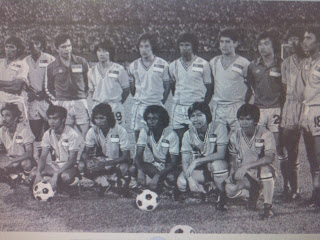The Teochews
From a long time ago around the 1800s, Chinese immigrants who spoke Teochew dialects moved to many parts of South East Asia like all other immigrants in search of a better life. Over the span of so many years, many Teochews have since become the most successful groups in their adopted countries so much so that they became more than proportionately represented in top positions of Government or in business and industry.
Teochews have been known to have established some of the most successful banks and industry not just in Singapore but in the region and played a major part in helping build new economies. Teochew people tend to have a strong sense of culture and community and have been known to have kept their traditions. It was reported that about 60 per cent of Teochews are living outside China and there are about 25 million in the world. The half a million Teochew in Singapore represents about 20 per cent of the Chinese population here. This is the second largest dialect group here after the Hokkiens. Teochews originated from the coastal communities around Guangzhou, Fujian and Zhejiang provinces and due to various factors including poor economic conditions and hardship in the old days, decided to go in search of a better life. Large numbers made their way to Hong Kong, Thailand, Indonesia, Malaysia and Singapore. The Thai cabinet can probably conduct their cabinet meeting in Teochew if they had wanted to. I have met many Thais who spoke Teochew and they probably are.
There was once a famous poet and intellectual Han Yu from the Tang Dynasty who went there and stayed for a year leaving a legacy and was worshipped by the Teochews. It was understood that the Han Jiang River was named after him. After that, the Teochew area became a place of high culture and scholarship. No wonder sometimes I felt like a Tang poet and have an urge to spout poetry. Like all immigrants, Teochews came to their adopted land as poor peasants but with the tradition of culture, scholarship and thrive, they went on to become successful businessmen and leaders. Their economic and social contributions to society and nation were well beyond the proportion of their numbers. In the Indochina trade, Teochews controlled the rice trade along the Mekong River.
Thailand
Many of Thailand's top businessmen and leaders are Teochew. Owner of Chang Beer that sponsored Everton in the EPL Mr. Charoen is a Teochew so was a Thai DPM Dr. Somkid. As mentioned earlier, they could have conducted a meeting in Teochew in cabinet.
Hong Kong
Many business tycoons in Hong Kong are actually Teochew with the biggest of them all being Mr. Li Ka Shing. Mr. Li Ka Shing started his giant empire by selling plastic flowers. He is still a man of little need and frequently contributed to the economies and institutions of Hong Kong, China and Singapore generously and to the establishment of Shantou University nearly twenty years ago. He is a giant among the Teochews.
Singapore
Teochews also made their marks in Singapore. Besides me, some Teochew pioneers contributed significantly to the development of Singapore. Seah Eu Chin was the King of Gambier after setting foot in Singapore in 1823 and he ran Tan Tock Seng Hospital. Lim Nee Soon owned a rubber empire and founded Chinese High School with Tah Kah Kee in 1919. Banker Lien Ying Chow only had a few dollars when he came here but he went back to help the Chinese government fought the Japanese invaders and was awarded a banking licence later. He then started the Overseas Chinese Union Bank later known as Overseas Union Bank.
I used to tell folks here that the Teochews have a very bright future because I counted about one third of our cabinet ministers are Teochew. This is also true that one-third of Parliament are Teochews but the Teochew population is only 15 per cent. Like Singapore punching above its weight? You bet. Ngee Ann Kongsi was formed by Teochew to promote education and founded Ngee Ann Primary, Secondary and College later became Ngee Ann Polytechnic.
Dialects
It is sad but true that due to the younger generation growing up in a totally different environment they no longer speak their parents' dialects. Or very few do. Our sense of tradition and heritage is being diluted more and more after every generation. So how do we ensure the good tradition, customs and values of years gone by that can be intertwined with the forces of modern day to ensure our being rooted? This is not just for Teochews but all dialects groups. In fact, whenever I spoke to people of other nationality, they too are facing the same problems and dilemma.
For fun's sake, listen to this Teochew song san to the tune of Jambalaya:
Teochew Song (Funny):http://www.youtube.com/watch?v=uFDtxj-R-Qg
It can be a common refrain to hear some people saying Teochew people are "hao lian" (proud or boastful). This is far from being the truth because people who are boastful and/or proud are so regardless of race, language, nationality or religion. In every category of people there are such people around. It is the person not from where he came from or belonged. All the world's a fruitcake, it is not complete without some nuts in it.
It can be a common refrain to hear some people saying Teochew people are "hao lian" (proud or boastful). This is far from being the truth because people who are boastful and/or proud are so regardless of race, language, nationality or religion. In every category of people there are such people around. It is the person not from where he came from or belonged. All the world's a fruitcake, it is not complete without some nuts in it.



Comments